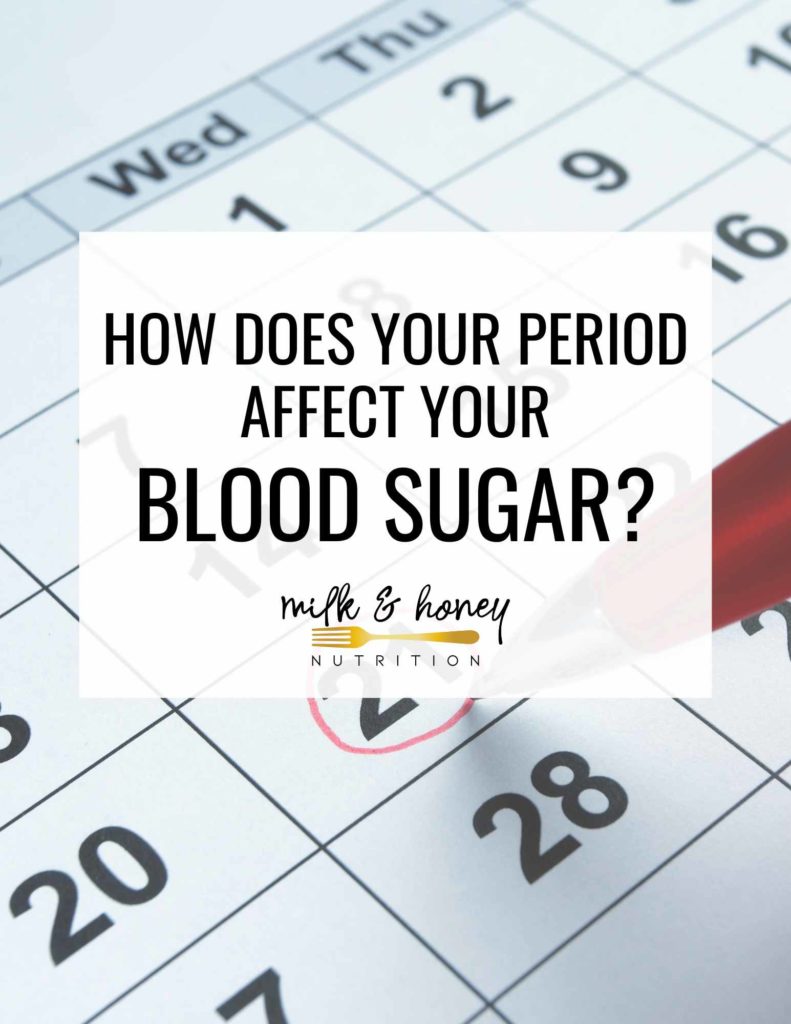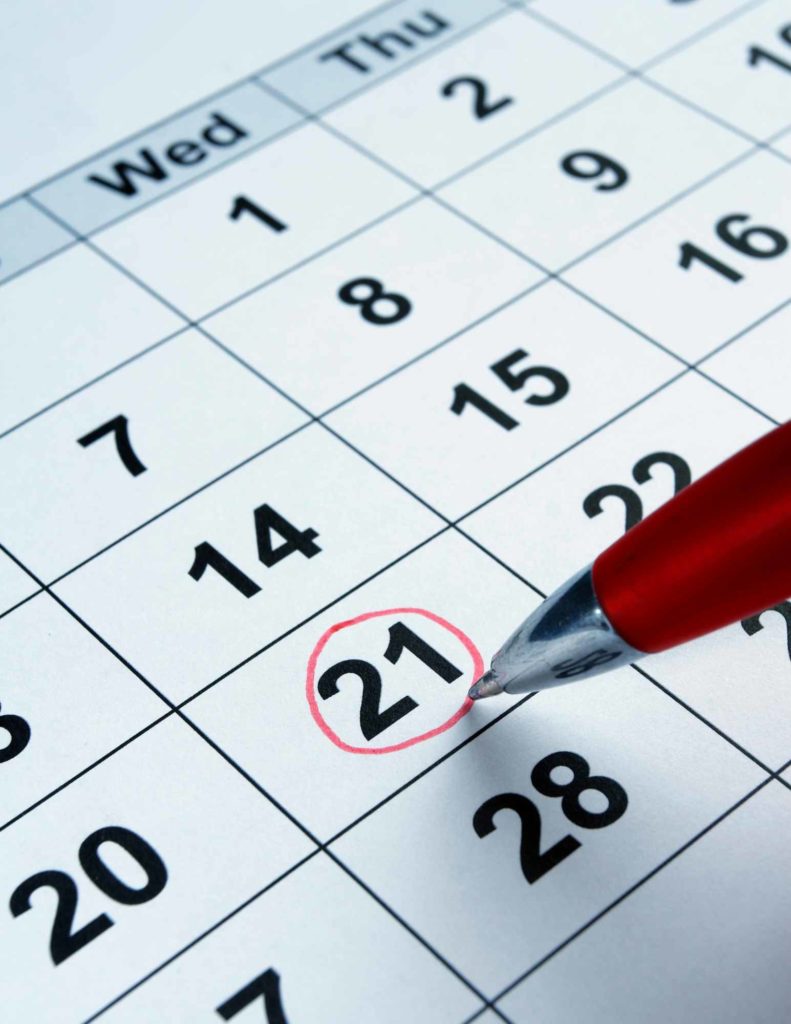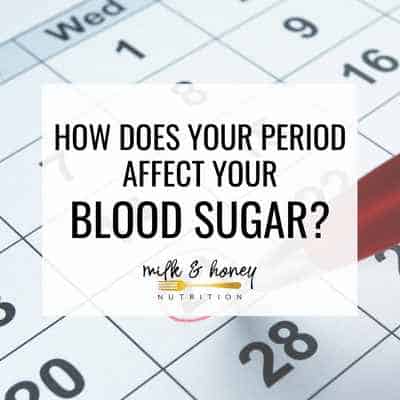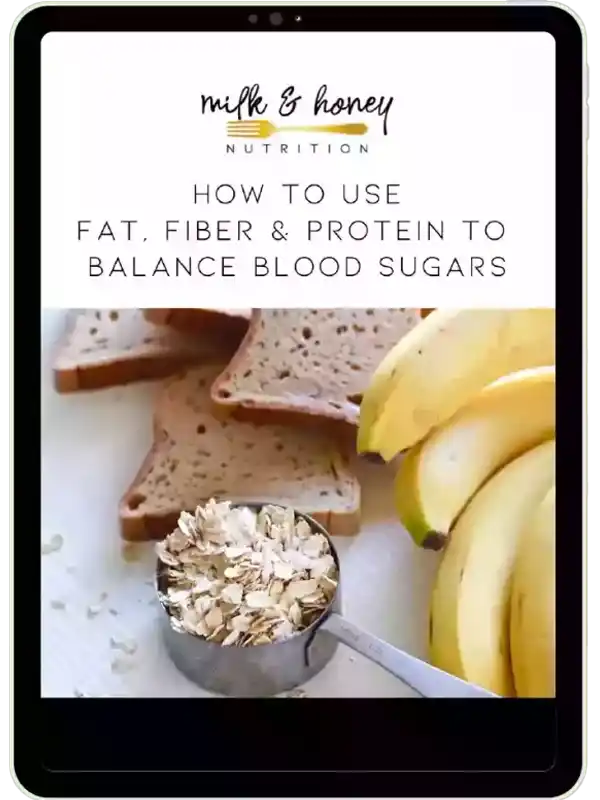
Have you every wondered how does your period affect your blood sugar levels?
The fluctuating hormones, energy level changes, and appetite swings that come with different stages of the menstrual cycle can all impact blood sugar levels and diabetes management. So, let’s take a closer look at just how does your period affect your blood sugar?
Everything you need to know about your period and blood sugar levels
Sometimes, I like to bring in other subject matter experts and interview them for certain diabetes topics.
And, one of my favorite online experts who regularly discusses mestrual cycles and blood sugars is Lissie Poyner.
Lissie is living with type 1 diabetes herself, and the creator of the Keeping it 100 Coaching Experience. And, Lissie is an Integrative Diabetes Health Coach, Certified Personal Trainer, and a Certified Nuero-linguistic Programming Practitioner.
After reading through this article, if you find yourself wanting to learn more about how your menstrual cycle and behaviors impact insulin resistance, Lissie and her team offer a free Insulin Sensitivity Syncing Tracker. You can grab yours here.
Menstrual cycle phases
Before we dive in, as a quick overview, let’s review the 4 phases of a female menstrual cycle:
- Menstrual phase
- Follicular phase
- Ovulation phase
- Luteal phase

Menstrual phase
This phase usually lasts 3-7 days and is what we know as our “period”. It starts when progesterone and estrogen levels drop as a result of the egg from the previous cycle not being fertilized.
Follicular phase
Next, the follicular phase starts on the first day of your cycle (along with the menstrual phase), but lasts for up to 16 days until ovulation. FSH (follicle stimulating hormone) levels rise which signals the ovaries to produce follicles that contain immature eggs. Estrogen levels also begin to rise again as the follicle matures.
Ovulation phase
During ovulation, the ovary releases a mature egg which, if not fertilized, will dissolve… usually within 24 hours. Ovulation is triggered by rising estrogen levels (during the follicular phase), which causes the pituitary gland to release luteinizing hormone (LH).
Luteal phase
Finally, the luteal phase usually lasts about 14 days and occurs after ovulation until you start your next menstrual phase (or period). Estrogen and progesterone levels will rise initially and then fall, which results in the onset of your next cycle. This is also the phase where some people experience PMS symptoms.
For more information on each phase of the menstrual cycle, I like this article from healthline.com.
Can diabetes affect your period? Symptoms, etc.
Lissie had such a great analogy for how diabetes can impact PMS symptoms…
“I think of blood sugars and PMS symptoms like a ripple effect. PMS naturally influences our fatigue and emotions. When we combine that with higher blood sugars or more insulin resistance due to hormone shifts, we can feel more of that impact.”
Can PMS affect blood sugar levels?
And, the reverse scenario is also true. Increased PMS symptoms, as a result of increased hormone levels during the luteal phase, can make blood sugars more difficult to manage and increase insulin resistance.
Does your menstrual cycle affect blood sugar levels?
Lissie had great advice to consider. “With our clients, we’ve found that supporting your blood sugars can overall make a positive impact on your experience during your cycle! When we think about it, blood sugars and hormones are supported by similar things: decreasing stress, integrating movement and balanced meals. When we focus on these core habits and behaviors, we can experience less PMS symptoms, less blood sugar fluctuations and less insulin resistance overall.”
Hyperglycemia during your menstrual cycle
Can my period make my blood sugar high? For some people yes, and for some people no.
According to Lissie, “In a regular 21-35 day cycle, we see four phases: the menstrual phase, follicular phase , ovulation and luteal phase. In the first half, we are typically estrogen dominant which is a hormone that promotes insulin sensitivity. After ovulation, we see more progesterone which can promote more insulin resistance. As always, it’s important to remember that every person has their own unique patterns!
Can periods cause hypoglycemia?
Everyone is different and your levels of insulin resistance or sensitivity will vary. Some people may notice a drop in blood sugars along with the drop in hormones when your cycle starts over.
Why do I crave sugar on my period?
Having your period is a big stress on the body. And, added stress on the body can mean increased nutrient needs… including simple, easy to digest carbohydrates.
Can people with diabetes take birth control?
Any discussion of medication should always be discussed with your doctor, and Lissie agrees. “This should always be discussed with your physician first, but generally yes! Depending on your birth control methods and the hormones involved, you may experience a shift in your blood sugars but just like any other factor in diabetes, understanding your personal trends and adjusting accordingly is key!”

For more information on Lissie Poyner and her resources, visit the Keeping it 100 Coaching Experience website.





